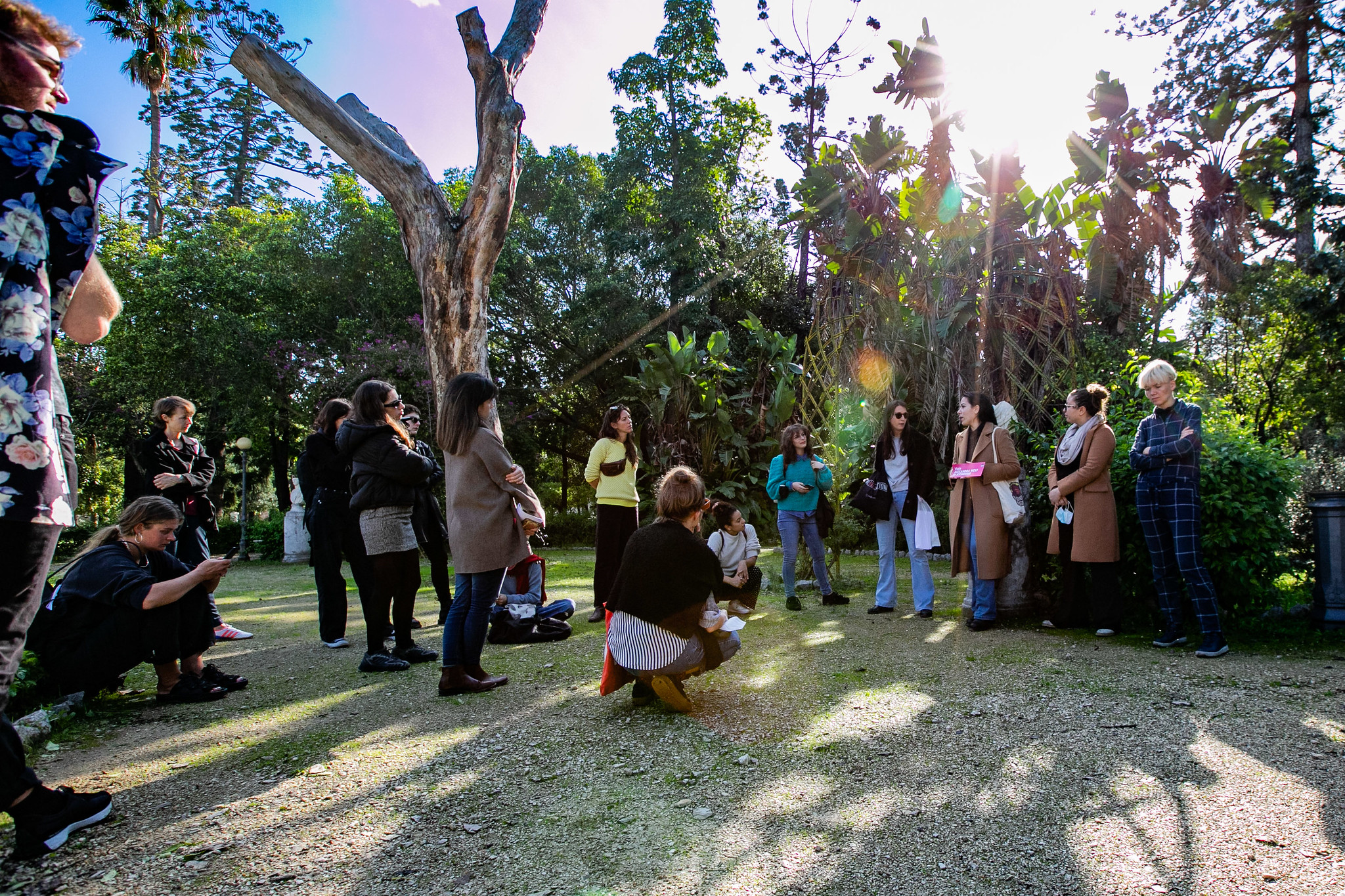This year-long+ action-learning programme aims to nurture the interconnected movements and responsive strategies needed to challenge the interlocking systems of oppression we face today. It combines high quality training, an action learning framework, as well as cross organisational and movement networking.
The first year of the programme will support a cohort of activists from across Europe in a mixture of online and residential trainings to:
- Embed structured action-reflection learning within their movement building practice, by providing a well-crafted framework for ongoing action learning, mentorship, and peer-to-peer inquiry
- Access high quality training on key themes and issues related to movement building and transversal and transnational organising
- Enhance capacity for the development of long-term strategic projects capable of adaptation and responsiveness
- Leverage the kind of relationship building that happens within a learning space to foster networks of relationships across organisations and movements able to seed new transversal and transnational initiatives
This programme has grown out of our different flagship trainings: Ulex Project’s Ecology of Social Movements, the Citizen Participation University that the European Community Organising Network contribute to, the National University of Ireland Maynooth’s MA in activism, and European Alternatives’ School of Transnational Activism. It is aimed at experienced activists and organisers involved in movement thinking and practice from across Europe.
We’ll inquire deeply into how our organisations and networks relate to the wider ecology of activism within our movements – and how these movements relate to wider struggles in the ever changing cultural, socio-political and ecological context. Participants will engage in deep analysis of their own movement practice and movement ecology. They will have opportunities to explore and develop skills and understanding related to bridge building within and between movements and give attention to the opportunities and challenges of transnational movement building.
The programme is more than a training. It is designed as a transversal movement project – connecting different struggles and communities across barriers of gender and sexuality, race and ethnicity, social class, dis/ability and others. The course places action-learning, deep ongoing reflection, and building solidarity-based relationships at its core.
In addition to exploring key themes related to transversal and transnational movement building, the programme aims to model these practices and provide a well designed framework for ongoing action-learning and relationship building. While we can learn a lot from what has gone before and what others are doing in diverse contexts, critical reflective learning is key to translating experience across different contexts and for developing the responsiveness needed to develop effective strategies amidst the complexity of social change processes. The programme is designed to strengthen our capacity to embed learning across our different movements’ practices, so we can continue to learn from experience, design creative and testable interventions, and build strategic approaches that can respond to the ever-changing conditions we struggle within.
Through our work in activist education, we’ve witnessed the value of learning spaces for building the kind of relationships needed to underpin more effective transversal movement initiatives. Sometimes when people from different organisations, networks, or movements come together, they each bring their often-competing agendas, preferences and often prejudices about each other. The scope for finding new and transformative ways of working across our differences under these conditions can be limited. In contrast, in spaces for learning, which elicit different attitudes, we find that it becomes far easier to support a higher level of respectful interest, curiosity, and openness – even the sense of shared purpose and solidarity needed to develop the transversal movement connections we need today.
Who is it for?
The programme is aimed at activist and organisers based in Europe who:
- Have substantial personal history of social movement engagement and experience to share with each other
- Are embedded in organisations or networks that can benefit from thinking strategically about their place in social movements
- Are well placed to bring new learning and strategic thinking back to their organisations or movements
- Understandwhat is at stake at this time and care passionately about developing majority social movement alliances on a scale capable of winning
- Recognise the importance of developing our capabilities to organise transversally, across multiple forms of difference within and between our movements
- Are conscious of the importance of translocal and transnational dimensions of organising today.
How does the Movement Learning Catalyst work?
Our community research and education program is a collective journey gathering knowledge and skills on transnational and transversal movement building, training community organisers, political activists, and movement educators, as well as sharing tools and resources with the global community of movement builders. It’s all about learning how we can practically learn from each other and together apply “reflexive” methods, skills and tools to develop “strategic wisdom” and build transnational grassroots power in our common struggles for social transformation beyond divisions and borders.
How can I get in touch?
If you are interested in being part of the programme and in the process, please contact Niccolò Milanese: n.milanese@euroalter.com and Georg Blokus: g.blokus@euroalter.com

Countries Involved
Europe and beyond
Duration of Project
2022 - 2025
With the Support of

Partners